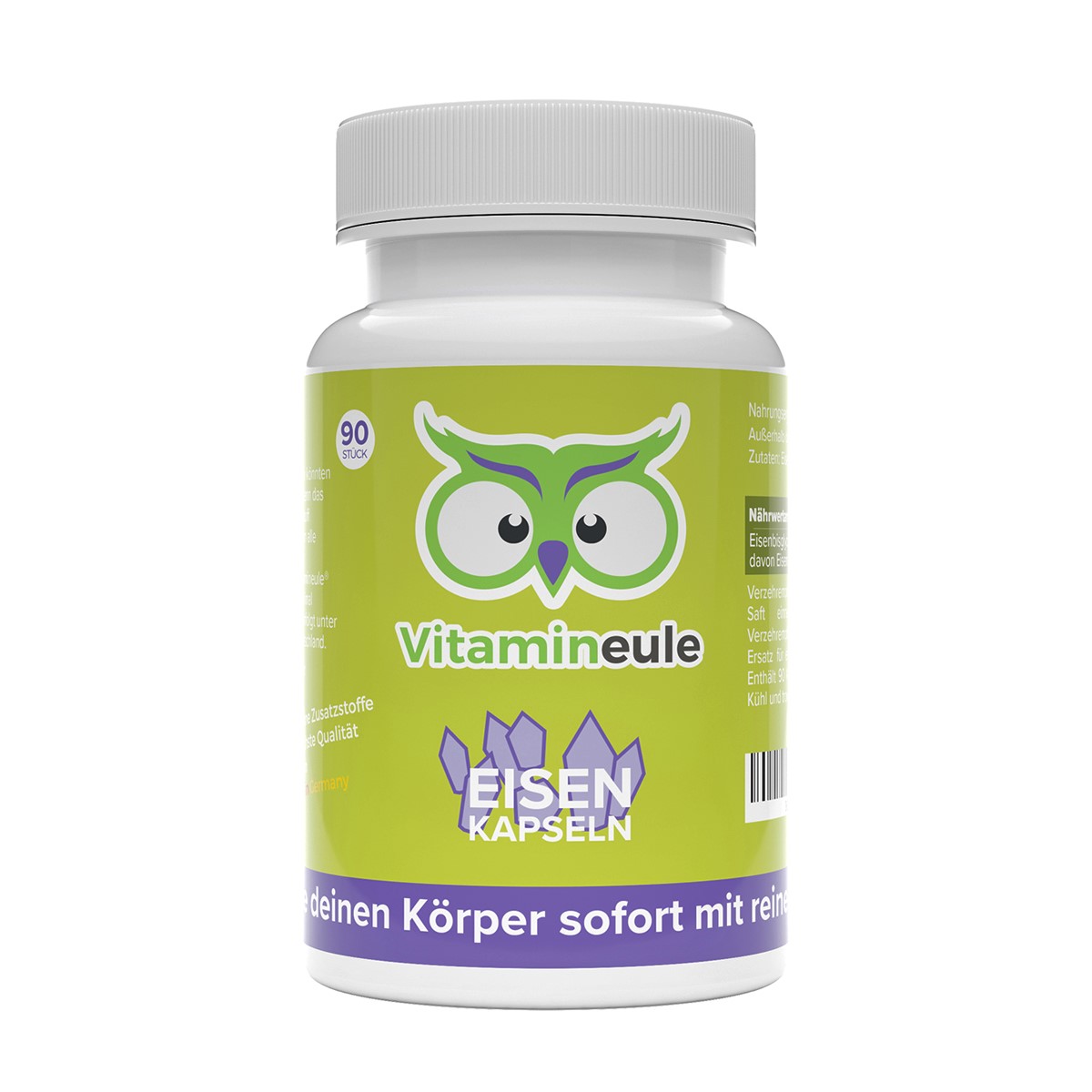

Team Vitamineule
Questions, wishes or suggestions? Just contact us by email or on Facebook.
1. what can you eat to combat iron deficiency?
In general, it is always particularly important to pay attention to a healthy and, above all, balanced diet. In order to avoid an iron deficiency, particular importance should be attached to foods containing iron. If the human organism receives too little iron, the oxygen supply can be impaired. It can also lead to cracked nails, broken hair and anaemia. Both animal and plant foods contain iron. The body is particularly good at utilising iron from animal products. Vitamin C also supports the absorption of iron in the body. When it comes to animal products, liver is a particularly good source of iron, as it contains the highest proportion of iron of all animal products. This is followed by duck liver with 30mg of iron per 100g. In the case of plant foods, oat flakes, wheat bran, sesame seeds, pulses and pistachios are particularly suitable. While egg white inhibits the absorption, egg yolk is a good source of iron.
2 What is the daily requirement of iron?
The German Nutrition Society (DGE) recommends a daily iron intake of 10 to 15 mg for an adult. Children should take in about 10 mg of iron per day. Pregnant and breastfeeding women are recommended to take in higher amounts of iron, as they have to take care of their unborn child. They should consume about 20 to 30 mg of iron per day.
3. functions of iron
Iron supports
- cell division
- the function of the immune system
- the transport of oxygen in the human organism
- the formation of red blood cells and haemoglobin
- the energy metabolism
4. iron in the form of food supplements
If you want to increase an iron level that is too low with a food supplement, you should definitely pay attention to the form of the active ingredient and its origin. Iron bisglycinate is particularly suitable for increasing iron levels. It is very well tolerated and is utilized by the body to a high degree. The preparation should also not contain any chemical additives such as magnesium stearate or microcrystalline cellulose. If you buy a preparation from Germany, you can be sure that the product has also been produced safely and is of high quality.
Our recommendation:
Vitamineule® Iron Capsules
In our online shop you will find our iron capsules from Vitamineule®, which are completely free of artificial additives. Vitamineule® Iron Capsules contain 56mg of pure iron per capsule in the effective form iron bisglycinate. Each tin contains 90 caps ules.In addition to fast & free shipping, we offer a voluntary six-month return guarantee on all products.
5. conclusion: What can you eat against iron deficiency?
Plant and animal foods contain iron. To avoid an iron deficiency, you should take in iron daily through a healthy and balanced diet. Animal products such as liver are particularly rich in iron, while plant products include foods such as spinach, legumes and oatmeal.
Further reading:
- Management of Iron-Deficiency Anemia in Inflammatory Bowel Disease
- Management of Iron Deficiency Anemia
- Iron absorption from oral iron supplements given on consecutive versus alternate days and as single morning doses versus twice-daily split dosing in iron-depleted women: two open-label, randomised controlled trials
- Iron Deficiency and Iron Homeostasis in Low Birth Weight Preterm Infants: A Systematic Review
- Clinical use of intravenous iron: administration, efficacy, and safety
Disclaimer and general medical notice: The content presented in our health blog is for neutral information and general education purposes only. It does not constitute a recommendation or advertisement of any diagnostic method, treatment, or drug described or mentioned. The text does not claim to be complete, nor can the timeliness, accuracy and balance of the information presented be guaranteed. The text is in no way a substitute for professional advice from a physician or pharmacist and it should not be used as a basis for independent diagnosis and initiation, modification or cessation of treatment of any disease. Always consult your trusted physician for any health questions or complaints. Mach Dich Wach! GmbH and the authors accept no liability for any inconvenience or damage resulting from the use of the information presented here.

